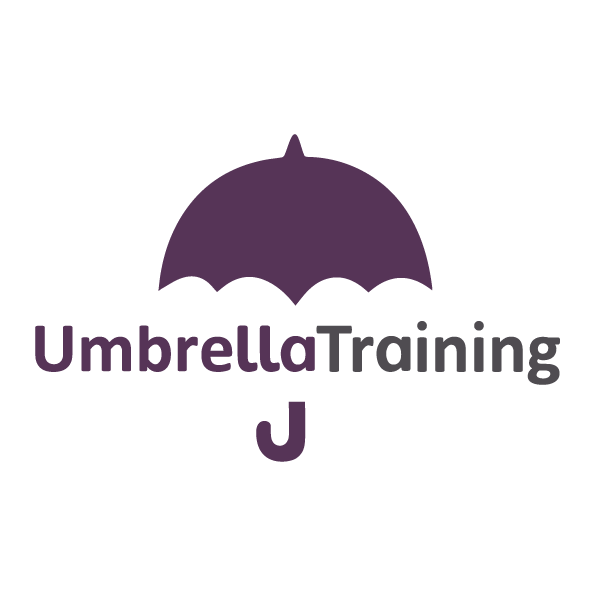Uniquely You for Dyslexia Awareness Week 2023
“She is brilliant but lazy. Maybe she should spend a bit more time checking her work?”
This is what my parents were often told during my time at secondary school. What my teachers and parents didn’t know is that often the essays I handed in, were often my 4th or 5th attempt. I had not been daydreaming but endlessly rewriting (by hand as computers were not available) my work, trying so hard to hide that my B’s and D's were the wrong way round or my ‘their’ and ‘there’ were used correctly and yet despite all this effort, I was still getting it wrong.
It was only when I was 15 and a year away from, my GCSEs that my parents could see how hard I was working but not getting the results in my English and Maths that they took matters into their own hands, and I was tested privately at the British Dyslexia Association.
Getting tested was the very best thing for me. I remember reading the report back a feeling seen for the first time in my education. It allowed me to understand why I was doing what I was doing. It then gave me the emotional and practical support and tools I needed to take my GCSEs, and go on to college and then University. I received resources like extra time for exams, a proofreader, a one-to-one essay support tutor, and even a budget for equipment and software.
Everyone experiences dyslexia in ways that are unique to them. I found my joy and talent by embracing my creativity. Dyslexics are often highly creative and big-picture thinkers. This is because they often have to strive to find creative solutions to tasks they find challenging, but also because we tend to be visual and/or spatial thinkers.
Choosing a career in Graphic Design allowed me to develop an understanding of visual language, using letters, numbers, images, icons and colours and making them speak together to convey a message.
This is one way I have embraced my dyslexia in my life and made it my own. It is something I am rather proud of. I love that I get to push myself with my career and thou I still can get frustrated with my speel…egh… spelling and my ability to communicate in words, I love that I can work in a job where my talent and creativity are embraced more than the fact that I find writing difficult and stressful.
Kaye Sedgwick-Jones - Everyone is Unique and we can all do amazing things. Sometimes when you have dyslexia you see and do things in a different way.
Kaye’s fingerprint character shows what she loves doing #UniquelyYou #DAW23 .
At Umbrella Training we want to help our dyslexic learners embrace, enjoy, and feel proud of their learning journey so they can apply their uniqueness and skills in their workplace and show their employers their talent.
The great thing about apprenticeships is that a lot of the learning is practical. It works on an 80/20 principle. 80% learning on the job, and 20% in classroom-based learning. This can be very appealing to a dyslexic learner if you find learning by doing better than all academic learning.
Yes, you still need to do Maths and English tasks, but you will have support from us the whole way through.
We offer learning support to all our learners as they go through their Maths and English models as part of their apprenticeship alongside our dedicated functional skills academy to help give our learners the best chance at completing their Level 1 or Level 2 (which is the equivalent of a GCSE) Maths and English if required.
We hold regular monthly reviews to make sure we can track your progress and help with any learning issues.
We can also provide additional support to eligible learners*, which includes additional time in exams, extended or more frequent assessor visits, and grants to claim specialist equipment and software.
Remember, dyslexia is a skill in its own way and it is worth embracing and harnessing it as it can take you far. You only have to look at dyslexic talent like Richard Branson, Steven Spielberg, Jamie Oliver, and Lewis Hamilton.
If you are dyslexic and looking to advance your learning but are not sure that apprenticeships are right for you or have worries that you might not be able to complete the functional skills part of the learning, why not reach out to us and have a chat?
Call: 0333 577 2557 and ask for Zak our Careers and Talent Director
We would be more than happy to talk out any worries you might have and see how we can support you on your learning and career journey.
PS. I am not the only one who thinks the word dyslexic or dyslexia is a mean word for some who struggle to write words right? I mean… there is a y and x in the word! Thank heaven for Grammarly!
Kaye :)
#UniquelyYou #DAW23
* In cases where reasonable adjustments require the purchase of equipment, this becomes the property of the training provider. It is suggested that providers reutilise this equipment to meet the needs of future apprentices. |For costs exceeding the monthly limit of £150 see excess learning support and exceptional learning support | Employers are expected to provide reasonable adjustments in the workplace.


